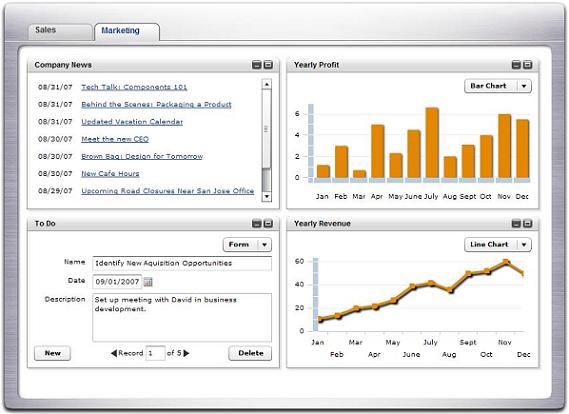The Real Reason Sales Role Play Fails—and How AI Role Play Fixes It
Yesterday, I hosted a live sales training call with a client’s sales team.
4 min read
![]() Dan Fisher
:
May 6, 2013 12:11:00 PM
Dan Fisher
:
May 6, 2013 12:11:00 PM

 Sales pipeline management including sales forecasting accuracy and velocity has become a major challenge for IT staffing firms including sales leaders and CEO's. Opportunities appear to be plentiful but business owners and sales managers alike share with me their frustration with stalled opportunities and “surprises” or new inforation that is not uncovered until late (often too late) in a sales cycle. And of course there are always those deals that just sort of "die on the vine." All of these these challenges of course negatively impact pipeline management and sales forecasting accuracy.
Sales pipeline management including sales forecasting accuracy and velocity has become a major challenge for IT staffing firms including sales leaders and CEO's. Opportunities appear to be plentiful but business owners and sales managers alike share with me their frustration with stalled opportunities and “surprises” or new inforation that is not uncovered until late (often too late) in a sales cycle. And of course there are always those deals that just sort of "die on the vine." All of these these challenges of course negatively impact pipeline management and sales forecasting accuracy.
In this blog I'm going to share with you why focusing on closest to the money is a waste of time. I will share with you some of the most common reasons we see IT staffing firms struggle with sales pipeline management and forecast accuracy steps sales managers can take to improve in these areas.
Common Challenges with Sales Forecasting & Pipeline Management
This last one by the way is a clear sign you may have a sales process problem
The first tip to keeping your sales cycle from stalling out is to to set measurable and verifiable outcomes for each stage of your sales cycle. Additionally, each milestone in your sales cycle should require your client to complete some sort of action item. Think about it, you make placements and earn commission dollars based on the steps your client must complete in order to buy from you. You can submit candidates all day long and complete all of the tasks in your screening, interviewing and recruitment process but the deal will still not go though until your customer completes all of his or her steps in their purchasing process. This is key, aligning your sales process with the customer's purchasing process.
Another solution to preventing a stalled sales cycle is tied directly to detailed customer questioning and analysis during the initial job order qualification. Here sales professionals and managers alike should focus on understanding the business driver(s) for the project, who the business driver(s) are for the project and what their goals are for the project and why those goals are important. The other job order qualification focal point should be on qualifying the compelling event and not only the problem the project (and/or consultant(s)) will solve for the client, but quantifiable business results the project will produce for the company. Time and attention also need to be focused on dissecting the approval process, decision makers and funding process. Additionally, you have to listen to the client’s tonality when they give you this information. In short, do they sound passionate? Are they convincing you this is a real need? If you’re not sure, the answer is most likely a “no.” Think about it, clients don’t just volunteer that information. Sales people must ask for it. Sales managers must take part in these conversations and coach their sales reps through these discussions.
Focusing on Deals "Closest to the Money" is a WASTE of TIME!
Here is where things get interesting. Most managers focus the majority of their time on opportunities that are “closest to the money.” From my experience, sales managers in the IT staffing industry generally use this term, as “any opportunity in the final interview stage or awaiting a final decision.” As a result, sales managers focus almost exclusively on trying to get clarity around close dates for these late stage sales opportunities. At this stage you hear sales managers and sales reps saying to each other “when is that deal going to close,” “when will you have feedback from the client,” “when will the signed MSA arrive from the client?” This obsessing about late stage deals is a TOTAL WASTE of time. Why? Because it is too late to do anything to influence the deal. This is what very average sales managers do.
Top performing sales managers on the other hand provide sales coaching very early in the sales cycle, above the  funnel. They do this because this is where they and the sales rep have the opportunity to build value into the sales process and truly influence the outcome of the opportunity. The other problem-for the reasons mentioned above-is the sales representative (and sales manager because they failed to provide early stage coaching) are out of alignment with understanding their client’s purchasing process. As a result they spend their time chasing, hoping, calling and emailing the client for an update. But they get nothing in return. For the sales manager, he or she missed the opportunity to provide sales coaching where they could actually influence the outcome.
funnel. They do this because this is where they and the sales rep have the opportunity to build value into the sales process and truly influence the outcome of the opportunity. The other problem-for the reasons mentioned above-is the sales representative (and sales manager because they failed to provide early stage coaching) are out of alignment with understanding their client’s purchasing process. As a result they spend their time chasing, hoping, calling and emailing the client for an update. But they get nothing in return. For the sales manager, he or she missed the opportunity to provide sales coaching where they could actually influence the outcome.
Ask yourself this; out of 10 client job orders, how often are you facing one of the following scenarios:
If 10% or more of your job orders are being closed out for any of the above (or similar) reasons, your sales team including the sales manager need to focus more time on early stage sales qualification and coaching.
According to research conducted by Huthwaite, a global sales performance organization focused on scientifically validated behavioral research,
"world class sales managers focus twice as much time on early stage sales opportunities as they do on late stage opportunities."
It’s pretty easy to see why. When sales managers focus exclusively on late stage opportunities and getting accurate and updated sales data into their CRM/ATS they can’t coach their sales reps to properly qualify and lead their client through the sales cycle. When sales managers only focus on "closest to the money" they rob themselves and their sales reps of the coaching opportunity of sharing with the sales rep where and how they can build value into the sales cycle. Sales managers also miss the sales coaching opportunity of how to overcome potential problems or bottlenecks and offer up solutions. In short, with little to no early stage opportunity coaching, unqualified opportunities make it into the sales pipeline
If you’re a sales manager responsible for your sales forecast and want to improve your accuracy, there is a simple answer. Spend more time with your sales reps during the qualification stage. And once the opportunity has been thoroughly qualified, continue to re-qualify the opportunity throughout the sales cycle. Doing this will not only eliminate those late stage “surprises,” but it will ensure your team members are spending their time on the right opportunities.
To learn more about sales coaching and create a winning sales culture download our eBook, How to Create a Culture of Accountability Through Coaching and Empowerment.

Yesterday, I hosted a live sales training call with a client’s sales team.

1 min read
Most staffing firms don’t struggle to scale because their teams aren’t working hard. They struggle because they don’t have a real go-to-market...

In my previous post, How to Prevent Unexpected Contract Terminations, I shared how systemizing consultant and client check-ins at key milestones...